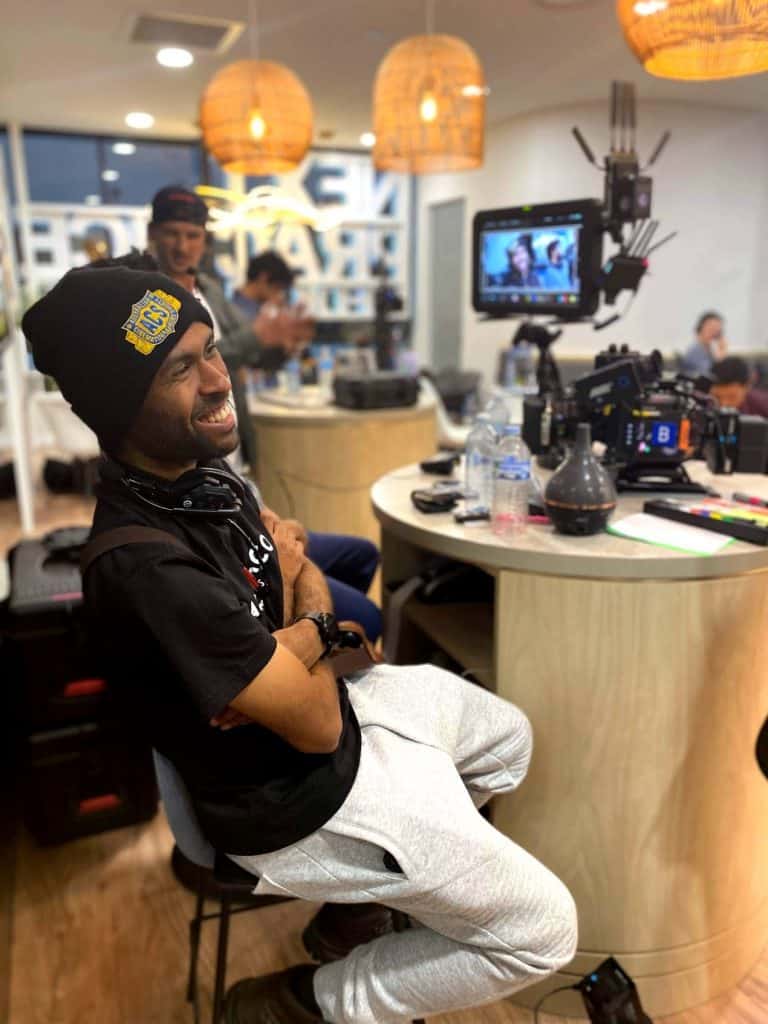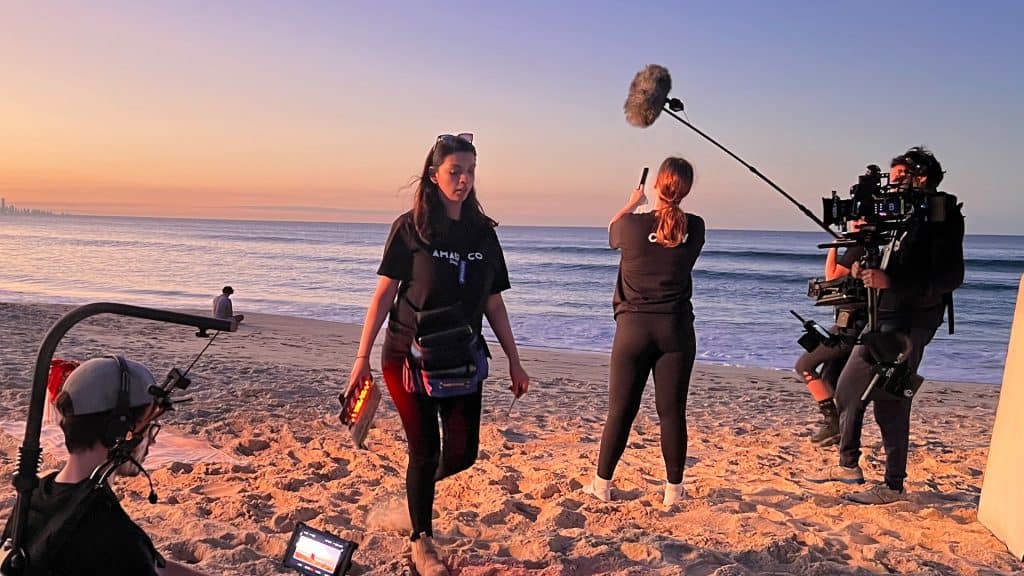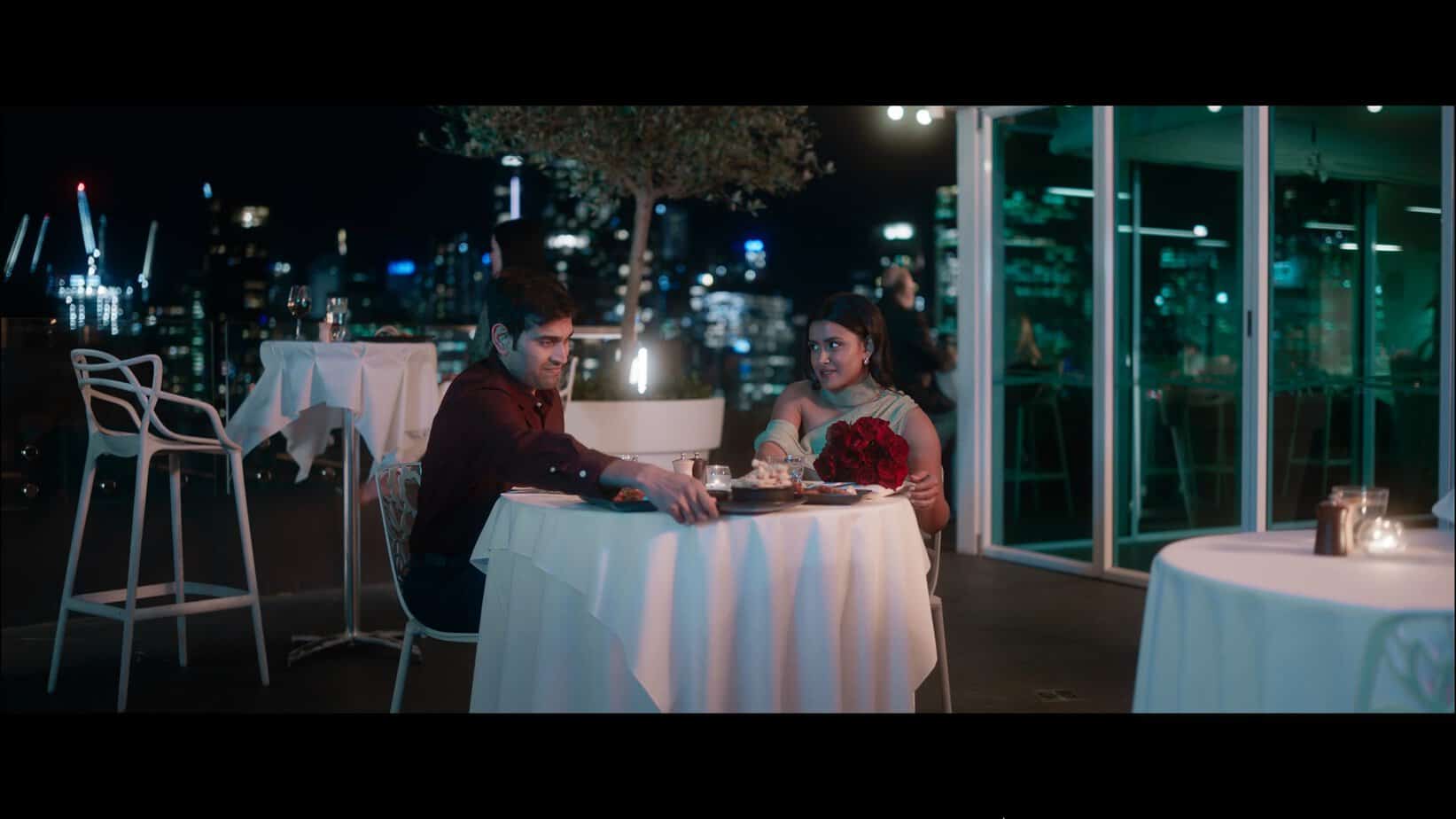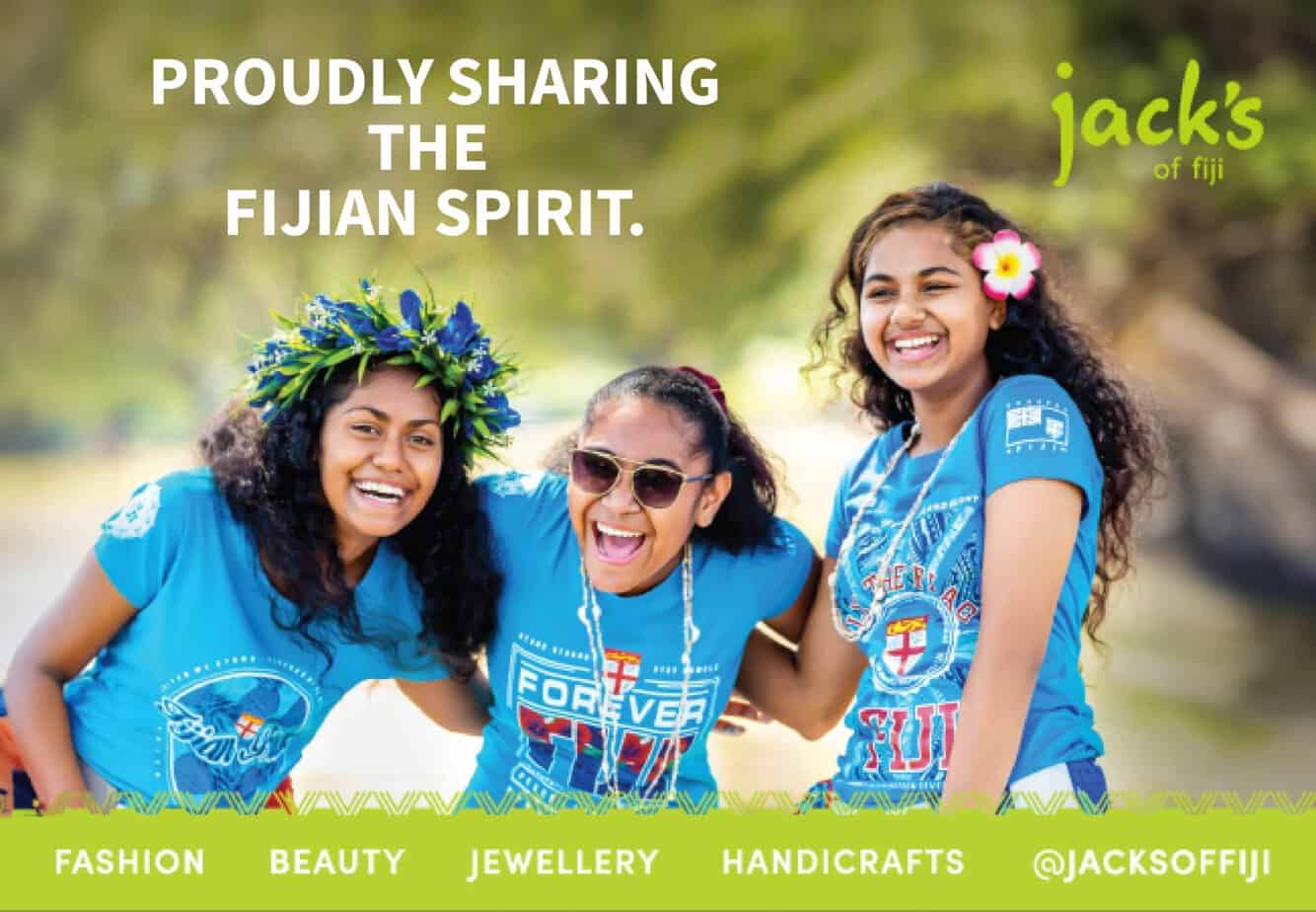By Ben Wheeler
Writer-director Sanjane Koneshamoorthy and director of photography Rah Sharma talk about their Australian-produced film Arranged Love, screening in Fiji this February.
“I was a kid sitting in Nehru Primary, daydreaming about becoming an aircraft engineer, even though I struggled in my studies,” Sharma says. “Life took unexpected turns, but when you start something with passion, it pushes you in directions that bring you closer to your purpose.”
That purpose, as would soon become clear, was to make movies.
“Never in a million years did I think, as a teenager in Fiji, that I could be a filmmaker. We’re often told it’s expensive, not possible, but I’ve shot films on a smartphone and was awarded at a Film Festival at the Sydney Opera House.”
“Filmmaking in Fiji is driven by pure passion!” Sharma exclaims. “Despite the limited resources, local artists continue to produce outstanding work, proving that storytelling transcends budget constraints. I hope to see more opportunities emerge in Fiji, encouraging new talent to explore cinema, acting, and music.”
Sharma says the movie explores universal themes. His crew included fellow Fiji-Indian camera assistant Sharleen Cornish.
“Given the scope of the project, we chose to use two Arri Alexa Mini LF cameras to maximize productivity and efficiency. Most of the time, both cameras ran simultaneously, allowing us to capture multiple perspectives and enhance the storytelling process. Filming with these incredible cameras was a wonderful experience reinforcing that anything is possible if you dedicate yourself to your craft.”
So, what inspired this unique story?
“Growing up in West, it was rare to see an English-language film that showed the South Asian community in an authentic manner,” Koneshamoorthy explains. “Ultimately, Arranged Love attempts to do this, utilising the universally relatable theme of love as a focal point.
“I felt that a summation of the film would be that love comes in many forms, and that’s how I’ve always felt about God – many forms, many names.
“Being a Hindu, we believe in female forms of God as well and this allowed the dual voice narration. Instead of only the typical deep, booming male voice representing God, we also have a female voice. It speaks to themes like gender equality amongst us all.”
The film has an impressive multicultural milieu.


“This is the world I know!” Koneshamoorthy replies. “Even within the South Asian background of the characters, there is diversity.
Dhaventhiran’s mother is Punjabi while his father is Indian Tamil. Merunasri’s father is Sri Lankan Tamil, while her mother is Indian Bengali. Rizwan is Bengali too but from Bangladesh.
“Coming to the next generation of characters, this is what modern Australia resembles and allows for: many different cultures, preserving and celebrating their own cultures as well as those of others. Australia, and the world, is at its best when we take the best of all cultures and embrace them.”
And the playful genre bending?
“I wanted the film to be a romantic comedy at first but as the script evolved, I wanted two seemingly contradictory things to come out – the simplicity of love and the depth of love. As such, that made the film more of a dramedy without ever going into a melodramatic zone.”
“I wanted the film to feel real. I wanted the actors to be the characters, not to act as them; to
convey emotions in a subtle and real manner.”
“I came across Atharv Kolhatkar who plays Dhaventhiran online as he has a profile in Australia as a theatre actor, and after a couple of auditions, I knew he was the guy to play Dhaventhiran. It was a similar experience with Aurnab As-Saber who plays Rizwan.”
“Casting for Merunasri was far more difficult. We spent over a year trying to find the right person to play her – a few wonderful actors came very close, but I am so glad I waited until Fatema Khan came along.”
“I spoke to her and found that she could relate to Merunasri as a character through similar lived experiences. We auditioned her and then Rah and I screen tested the three of them in Melbourne, which was a great experience in itself. I then knew that the film was ready to be made.”
Sharma says the collaboration with Koneshamoorthy was an incredible journey.
“Arranged Love explores the balance between tradition and modernity — something many can relate to,” says Sharma. “Working alongside Sanjane and our dedicated crew was an incredible journey, ensuring our vision and purpose remained aligned throughout.”
Their advice for aspiring filmmakers in Fiji is to stay committed to your vision.
“Start with what you have and never lose sight of why you began,” Sharma extols. “Focus on storytelling, collaborate with like-minded creatives, and don’t wait for the ‘perfect’ moment—just start creating. Once you achieve one goal, set your sights even higher.”
In many ways this is a sentiment remarkably aligned with the central message of Arranged Love.
“There is no experience quite like filmmaking!” enthuses Koneshamoorthy. “If it calls out to you, just do it. Plan as best as you can but know that there will be unexpected challenges. Make sure you give it your all and make something you will be proud of.”
“The world is richer each time a great story is told.”
Arranged Love will be screening in cinemas across Fiji from 21st February.



